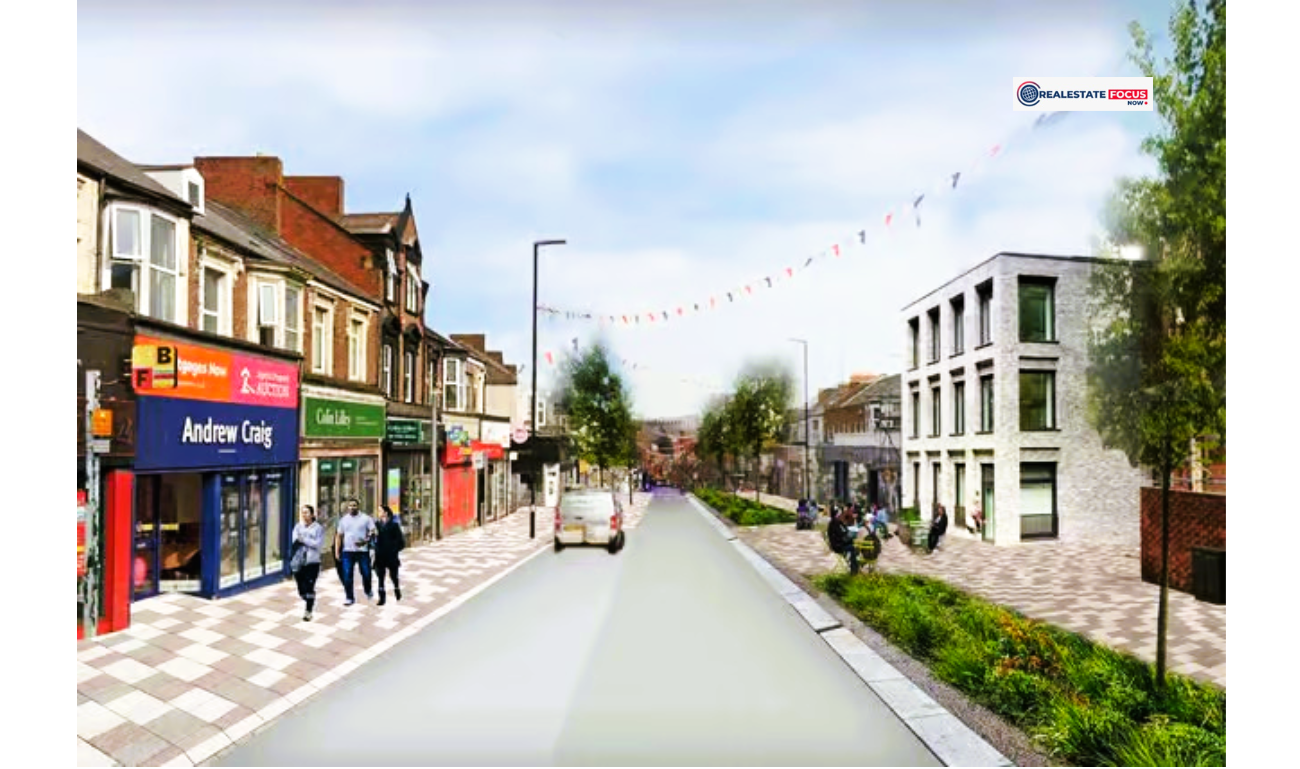

Hong Kong New Residential Sales Drop 64%
Hong Kong’s real estate market has faced a sharp decline in new residential sales, with a 64% drop in recent months. This significant reduction is a clear indicator of a slowdown in demand for new homes. The drop in sales marks one of the most significant declines in the city’s property market in recent years.
Such a large decrease in transactions has caused concern among both developers and potential buyers. Several factors have contributed to this downturn, affecting the overall dynamics of the market.
A key factor behind the decline in sales is the ongoing economic uncertainty. The Hong Kong economy has been facing challenges in recent months, and this has made both consumers and investors more cautious.
People are unsure of the future direction of the economy, which has made many hesitant to make big financial commitments, such as purchasing a new home. This uncertainty has caused many would-be buyers to pause or delay their decision to enter the housing market.
With so many factors contributing to the overall economic climate, people are less inclined to make major investments in property. Another significant contributor to the drop in sales is the persistently high property prices in Hong Kong.
The city is known for its expensive real estate market, with property prices continuing to rank among the highest in the world. These elevated prices make it difficult for many buyers to afford new homes, especially first-time buyers or those with lower budgets.
As the cost of purchasing property remains high, fewer people are willing to commit to buying a home. The combination of high prices and reduced affordability has pushed many potential buyers out of the market, further decreasing the number of transactions.
Government regulations and policies have also played a role in the decline of residential sales. In an effort to cool down the overheated property market, the Hong Kong government has implemented stricter measures aimed at controlling housing prices.
These include more stringent mortgage requirements, higher down payments, and regulations that limit property speculation. While these policies were intended to ensure more sustainable growth in the real estate market, they have also made it harder for buyers to secure financing for new home purchases.
The tightening of mortgage availability has directly impacted sales, as many buyers find themselves unable to afford the upfront costs required to buy property. Developers in Hong Kong are facing increased pressure as the residential market slows.
With fewer transactions taking place, many developers are now adjusting their strategies to cope with the decline in demand. To stimulate sales, some developers may offer discounts or price reductions on their properties in an attempt to make them more attractive to potential buyers.
Others may pivot to building more affordable housing to cater to the needs of lower-income buyers. While some developers may try to offer incentives, the market conditions make it difficult to predict how successful these efforts will be in increasing sales.
Another factor that has weighed on Hong Kong’s residential market is the fluctuating interest rates. The rise in global interest rates, coupled with local economic challenges, has made borrowing more expensive.
Higher interest rates mean higher monthly mortgage payments, which can deter potential homebuyers from committing to new purchases. As interest rates continue to rise, many buyers may choose to delay their decisions to buy a property, hoping for better conditions in the future. This further contributes to the current slowdown in sales.
While the current slowdown has affected the housing market, some experts believe that the market may eventually stabilize and recover. Hong Kong’s property market has been resilient in the past, bouncing back after periods of downturns.
If the economy improves and confidence returns, the demand for residential properties could pick up again. However, the market’s recovery will depend on several factors, including the stabilization of the economy, lower interest rates, and more affordable housing options becoming available to buyers. The market may also take time to adjust to the new policies and regulations in place.
For now, Hong Kong’s residential market is facing a period of uncertainty. The combination of economic factors, high property prices, and government regulations has made it more challenging for buyers to enter the market.
Many potential homeowners are choosing to wait and see if conditions improve before making a purchase. The decline in sales represents a difficult situation for developers, who may need to rethink their strategies for selling properties.
The future of Hong Kong’s real estate market is still unclear. While the slowdown in new residential sales may be temporary, it’s also possible that the market will continue to experience challenges in the months ahead. Buyers, sellers, and developers will all need to carefully navigate the market conditions as they unfold.
While the drop in sales is concerning, it also provides an opportunity for the market to adjust, offering more realistic pricing and possibly attracting new buyers who had previously been priced out of the market. As the economy and the property sector recover, sales could start to climb again, but the exact timeline for this rebound remains uncertain.
Overall, the significant drop in new residential sales in Hong Kong underscores the challenges facing the real estate market. Both macroeconomic factors and local regulations are playing key roles in shaping the current market conditions.
While the outlook remains uncertain, those involved in the market—whether buyers, developers, or investors—must stay informed and adapt to the changing circumstances. The coming months will be critical in determining how the market adjusts and whether sales will recover or continue to decline.






























